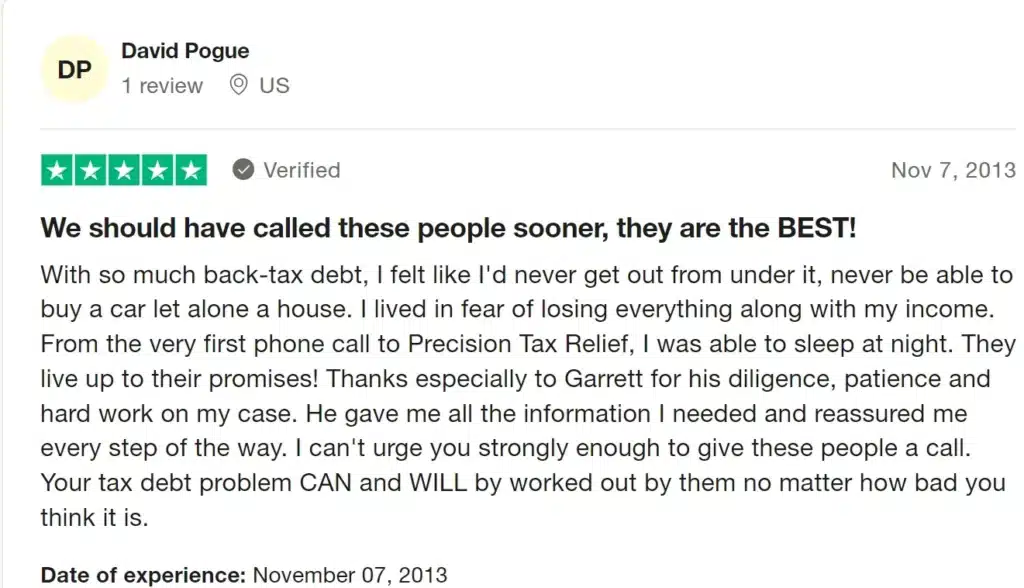Purchasing a home is one of life’s most significant milestones. But if you owe back taxes, you might wonder if homeownership is even possible. The short answer? Yes, you can buy a house if you owe taxes, but the process requires careful planning and understanding of your financial obligations.
At Precision Tax Relief, we specialize in helping individuals resolve tax debts and navigate challenges like buying a house while owing taxes. In this article, we will explain how back taxes impact your ability to secure a mortgage, strategies to overcome these hurdles, and steps to achieve your dream of homeownership.
The Impact of Back Taxes on Buying a Home
Tax Liens vs. Tax Debts
If you owe taxes, it is crucial to distinguish between a tax lien and a tax debt:
- Tax Debt: This refers to the amount of unpaid taxes you owe the IRS or state tax authority. Tax debts can arise from missed payments, errors on tax returns, or underpayment.
- Tax Lien: If your tax debt remains unpaid, the IRS may file a lien against your property. A lien secures the government’s interest in your assets, making it difficult to buy or sell property until the debt is resolved.
How Tax Liens and Debts Affect Mortgages
- Credit Score Impact: A tax lien negatively affects your credit score, signaling to lenders that you are a high-risk borrower. Tax debts may also appear on your credit report, which lenders review during the mortgage application process.
- Debt-to-Income (DTI) Ratio: Lenders evaluate your DTI ratio to assess your ability to repay the loan. Tax debts increase your liabilities, potentially making it harder to qualify for a mortgage.
- Mortgage Approval: Many lenders require tax debts to be resolved or under an established repayment plan before approving a mortgage. Active tax liens are particularly problematic as they take precedence over a lender’s claim on the property.
How Can You Buy a House While Owing Taxes?
When David first called us, he thought his dream of owning a home was out of reach. However, with our help, he built the financial credibility needed to secure a mortgage within a year.

Here is how you can do the same:
1. Address Your Tax Situation
Before applying for a mortgage, it’s essential to resolve or manage your tax debts. Here are actionable steps:
- Set Up a Payment Plan: The IRS offers installment agreements that allow you to pay your tax debt over time. Most lenders accept borrowers under a repayment plan as long as payments are timely and consistently.
Learn how to set up an IRS installment agreement. - Negotiate an Offer in Compromise (OIC): If you are experiencing financial hardship, you may qualify to settle your tax debt for less than the full amount owed.
Contact us today for a free consultation to explore your tax relief options.
2. Prove Financial Responsibility
Demonstrating financial responsibility is key to gaining lender approval. Ensure the following:
- Provide documentation of your IRS repayment plan.
- Show proof of consistent payments over 3–12 months.
- Maintain good credit by avoiding missed payments on other debts.
3. Consider Loan Types
Certain loan programs are more lenient for borrowers with tax debts:
- FHA Loans: These government-backed loans allow borrowers with tax debts to qualify if they’re on a repayment plan and have made at least three timely payments.
- VA Loans: Military borrowers can qualify for VA loans if they’re under a repayment plan and meet debt-to-income ratio requirements.
- Conventional Loans: These loans are stricter, but may still be an option if your tax debts are fully resolved or under a repayment agreement.
4. Remove Tax Liens
If a tax lien exists, it is critical to address it before purchasing a home. Options include:
- Paying the Lien in Full: This ensures the lien is released within 30 days.
- Requesting Lien Subordination: This allows other creditors, such as mortgage lenders, to take priority over the lien.
- Negotiating a Lien Discharge: If selling a property, you may be able to discharge the lien with IRS approval.
Need help removing a tax lien? Read our article on how to reverse an IRS tax levy.
5. Consult Tax and Mortgage Professionals
Working with experts can streamline the process. A tax relief specialist can help you resolve tax debts, while a mortgage broker can guide you toward lenders willing to work with your situation.
Take the First Step Toward Homeownership
Owing back taxes does not have to stand between you and your dream of buying a home. We are here to help you. Ready to leave tax worries behind and step into your new home? Schedule a free, no-obligation call with our tax relief experts today.







